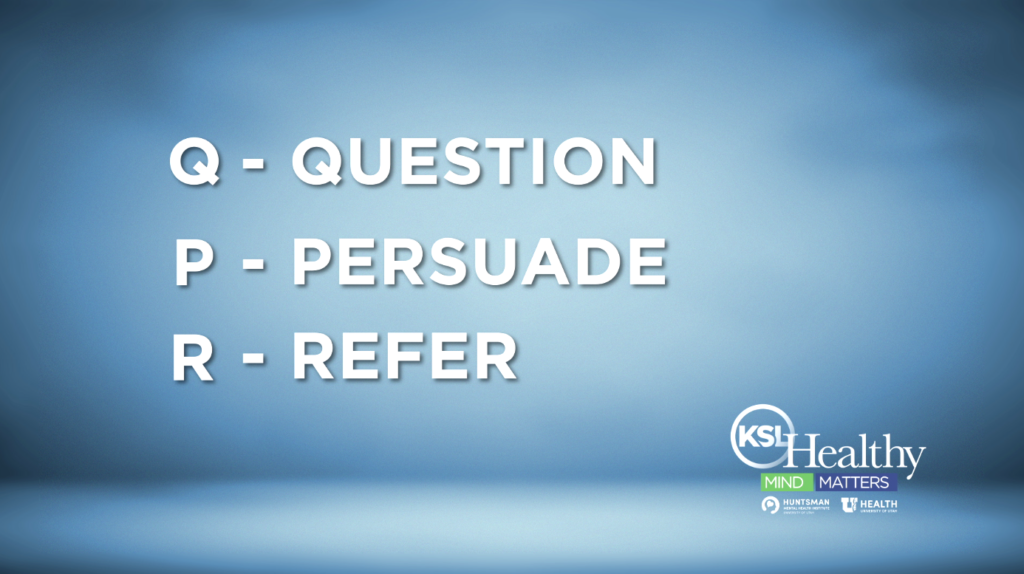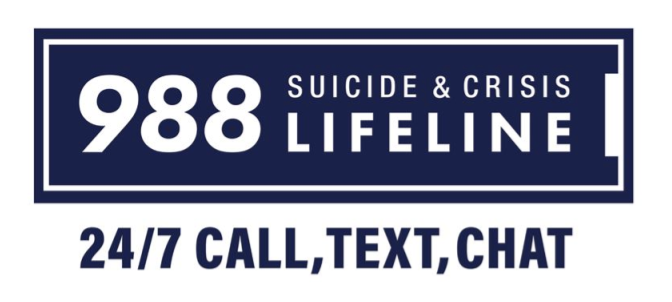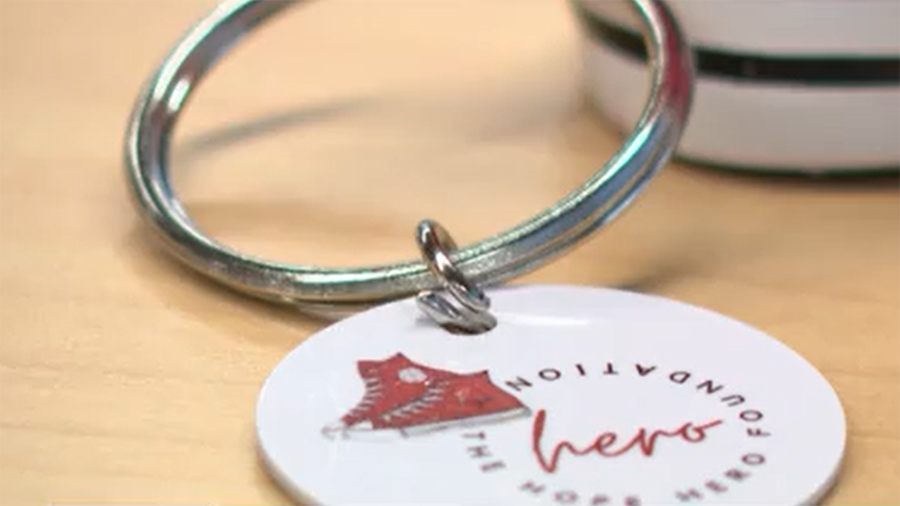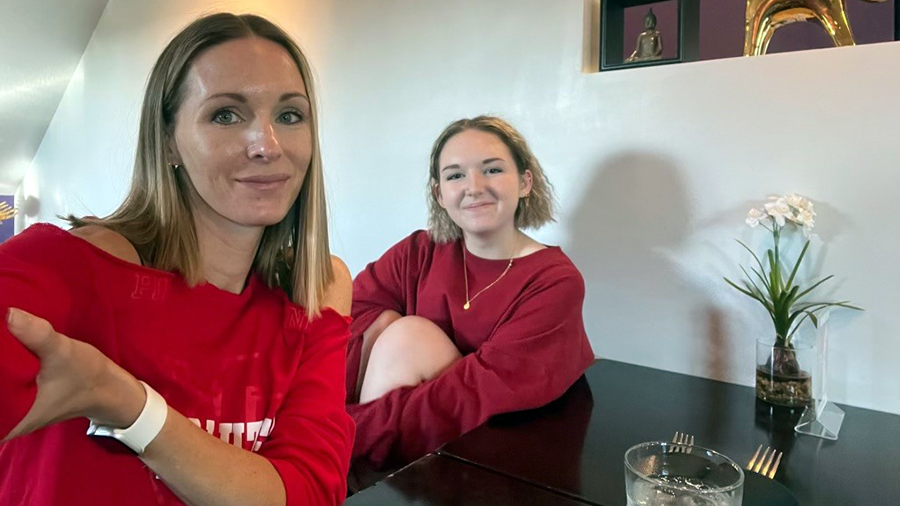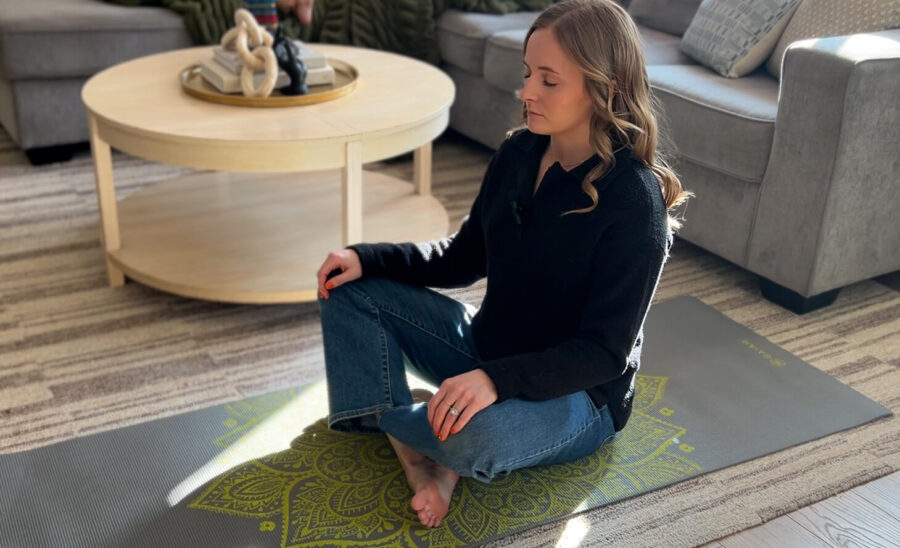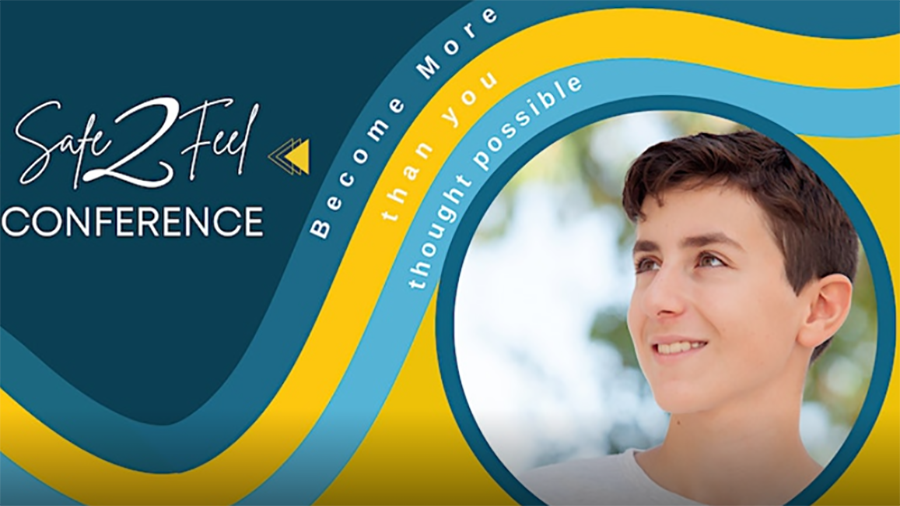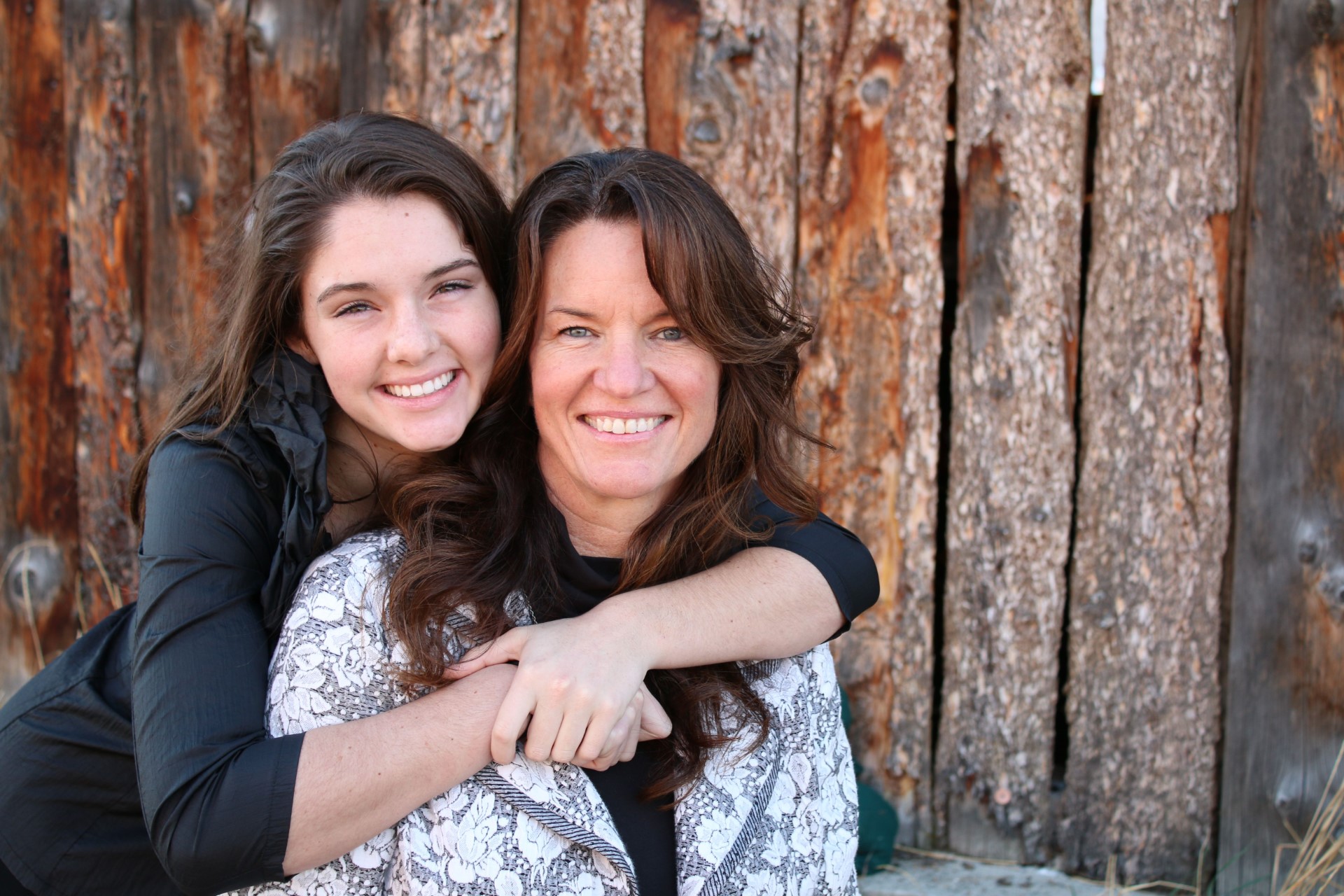Talking about suicide is key to recovery and support
Sep 7, 2022, 6:40 PM | Updated: Feb 9, 2023, 5:19 pm
SALT LAKE CITY — Fear of saying the wrong thing or possibly making things worse can stop us from openly talking with someone after a suicide attempt.
But Rachael Jasperson, the Zero Suicide program manager at the Huntsman Mental Health Institute, says nothing bad can come from a caring conversation and asking what you can do to help them through their recovery.
“Some people feel like if you ask, you’re going to plant the idea in their head, or you’re going to resurface feelings that they may have been experiencing,” Jasperson said. “And that’s just not the reality of it.”
“When people are struggling with suicidal thoughts and feelings, or they’ve made an attempt, there’s a lot of shame, embarrassment, guilt, sort of wrapped up in that. And if we don’t talk about it, and we don’t sort of push past that, through that – they bear the weight of that, and it becomes much more difficult to find their way through,” she said.
So, how do you start the conversation?
Jasperson said to push past any discomfort you may have and just ask.
“Say, ‘You know, I know this is uncomfortable, but I care, and I want to know what I can do to help. How can I be there for you?’”
If they prefer not to talk about it, that’s their right – but by asking, “you’re letting them know that you are willing to hear and you’re willing to have that conversation,” she said. “And that can mean a lot to somebody.”
“If we don’t have the conversation, we’re communicating something even bigger,” Jasperson added.
After a suicide attempt, the most important support can be ensuring the person’s environment is safe.
“If they are somebody who is at risk… access to firearms is more difficult during that time,” Jasperson said. “So that during a crisis, [ensuring] they don’t have easy access to that very highly lethal method.”
After that, Jasperson said it’s about checking in regularly.
“This isn’t a one-and-done, ‘Are you doing OK?’ You said yes. And then I walk away. It’s checking in, following up, looking for warning signs, whether or not somebody is slipping back into a suicidal crisis, recognizing the life stressors that are often associated with a suicide attempt, things like that,” she explained.
Going through QPR training may help you feel more prepared to offer support.
QPR stands for “question, persuade, refer.” Think of it like CPR to save someone experiencing a mental health crisis.
“It really focuses on this concept of asking questions,” Jasperson said, “and listening to hear someone, not to fix. I think that’s really important.”
“And if the person is at risk, getting them the help that they need, which is the refer,” she added. “You are not their therapist; you are not their provider. You are their mother, or their friend or their sister.”
NAMI Utah regularly hosts QPR training workshops. You can register online here.
Jasperson says postvention isn’t just about supporting a person who has attempted suicide. It’s also about supporting those left behind by a suicide death.
“That also can be a very difficult, very tricky process, because there’s anger and guilt,” she said.
Research shows people who experience a loss by suicide are at higher risk for suicide themselves. Checking in with them and making sure they are getting the professional support they need is also important.
Jasperson recommends participating in a caregiver support group, such as Caring Connections through the University of Utah College of Nursing.
Most important – don’t feel hopeless in the face of these difficult conversations.
“You have the skills, and you have the ability to help somebody through this,” emphasized Jasperson. “It’s uncomfortable, there’s no way around that. Talking about life and death, talking about mental health, those things are uncomfortable. But you’ve got to push past your discomfort in order to support those that that need it.”
Suicide prevention resources
If you or someone you know is experiencing suicidal thoughts or exhibiting warning signs, call, text, or chat the 988 Suicide and Crisis Lifeline at 988 which is answered 24/7/365 by crisis counselors at the Huntsman Mental Health Institute. All calls to legacy crisis hotlines, including the old National Suicide Prevention hotline, 1-800-273-8255, will also connect to a crisis care worker at the Huntsman Mental Health Institute as well.
Additional resources
- SafeUT: Parents, students, and educators can connect with a licensed crisis counselor through chat by downloading the SafeUT app or by calling 833-3SAFEUT (833-372-3388)
- SafeUT Frontline: First responders, including firefighters, law enforcement, EMS, and healthcare professionals can chat with a licensed crisis counselor at no cost 24/7/365 by downloading the SafeUT Frontline app.
- SafeUTNG: Members of the National Guard can chat with a licensed crisis counselor at no cost 24/7/365 by downloading the SafeUTNG app.
- Utah Warm Line: For non-crisis situations, when you need a listening ear as you heal and recover from a personal struggle, call 1-833 SPEAKUT 8:00 a.m.-11:00 p.m., 7 days a week, 365 days a year.
- The Huntsman Mental Health Institute offers a wide variety of programs and services including suicide prevention and crisis services, hospital treatment, therapy & medication management, substance Use & addiction recovery, child & teen programs, and maternal mental health services including birth trauma, pregnancy loss, infertility, and perinatal mood and anxiety disorders.
- LiveOnUtah.org is a statewide effort to prevent suicide by promoting education, providing resources, and changing Utah’s culture around suicide and mental health. They offer resources for faith based groups, LGBTQ+, youth, employers, firearm suicide prevention, and crisis and treatment options.
Other community-based resources
- NAMI Utah provides education, support and advocacy for individuals and families impacted by mental illness.
- American Foundation for Suicide Prevention offers prevention programs, public education, support for loss survivors, and fundraising for research.
- Encircle Utah: LGBTQ+ family and youth resource center.
- Utah Pride Center empowers Utah’s diverse LGBTQ+ community.
- The Trevor Project: LGBTQ teen resource center.
- U.S. Department of Veterans Affairs Mental Health
- Latino Behavioral Health Services
- Center for Workplace Mental Health offers suicide prevention and response for employers.


